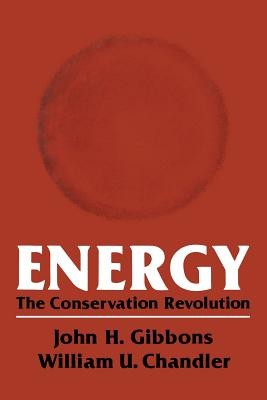
- We will send in 10–14 business days.
- Author: John Gibbons
- Publisher: Springer
- ISBN-10: 1461592119
- ISBN-13: 9781461592112
- Format: 15.2 x 22.9 x 1.5 cm, minkšti viršeliai
- Language: English
- SAVE -10% with code: EXTRA
Reviews
Description
We try in this book to provide a detailed but readable, technical but accessible monograph on energy in the United States. We treat energy as a multidisciplinary challenge and apply the standard tools of economists, physicists, engineers, policy analysts, and, some might claim, fortune tellers. We hope that it will be used in classrooms of various types, and read by the general reader as well. That increased energy efficiency should be the first priority of energy policymakers is a conclusion, not an assumption, of our analysis. Many analysts have arrived at this conclusion while working separately on energy supply problems. The magnitude and scope of supply problems, primarily problems of high prices and environmental costs, lead one inexorably back to reducing demand growth as the first, most important step in any plausible energy future. We examine, in some depth, why much of the past literature on energy still points, fallaciously in our opinion, to high energy c- v Preface vi sumption futures. This is in Part I (called A Short History of the Future). We devote one-third of the book (Part II) to energy resources, their internal and external costs, and the quantities of energy to be derived from these resources. This analysis provides a context within which the economic and social value of energy conservation options can be assessed.
EXTRA 10 % discount with code: EXTRA
The promotion ends in 22d.22:17:16
The discount code is valid when purchasing from 10 €. Discounts do not stack.
- Author: John Gibbons
- Publisher: Springer
- ISBN-10: 1461592119
- ISBN-13: 9781461592112
- Format: 15.2 x 22.9 x 1.5 cm, minkšti viršeliai
- Language: English English
We try in this book to provide a detailed but readable, technical but accessible monograph on energy in the United States. We treat energy as a multidisciplinary challenge and apply the standard tools of economists, physicists, engineers, policy analysts, and, some might claim, fortune tellers. We hope that it will be used in classrooms of various types, and read by the general reader as well. That increased energy efficiency should be the first priority of energy policymakers is a conclusion, not an assumption, of our analysis. Many analysts have arrived at this conclusion while working separately on energy supply problems. The magnitude and scope of supply problems, primarily problems of high prices and environmental costs, lead one inexorably back to reducing demand growth as the first, most important step in any plausible energy future. We examine, in some depth, why much of the past literature on energy still points, fallaciously in our opinion, to high energy c- v Preface vi sumption futures. This is in Part I (called A Short History of the Future). We devote one-third of the book (Part II) to energy resources, their internal and external costs, and the quantities of energy to be derived from these resources. This analysis provides a context within which the economic and social value of energy conservation options can be assessed.


Reviews